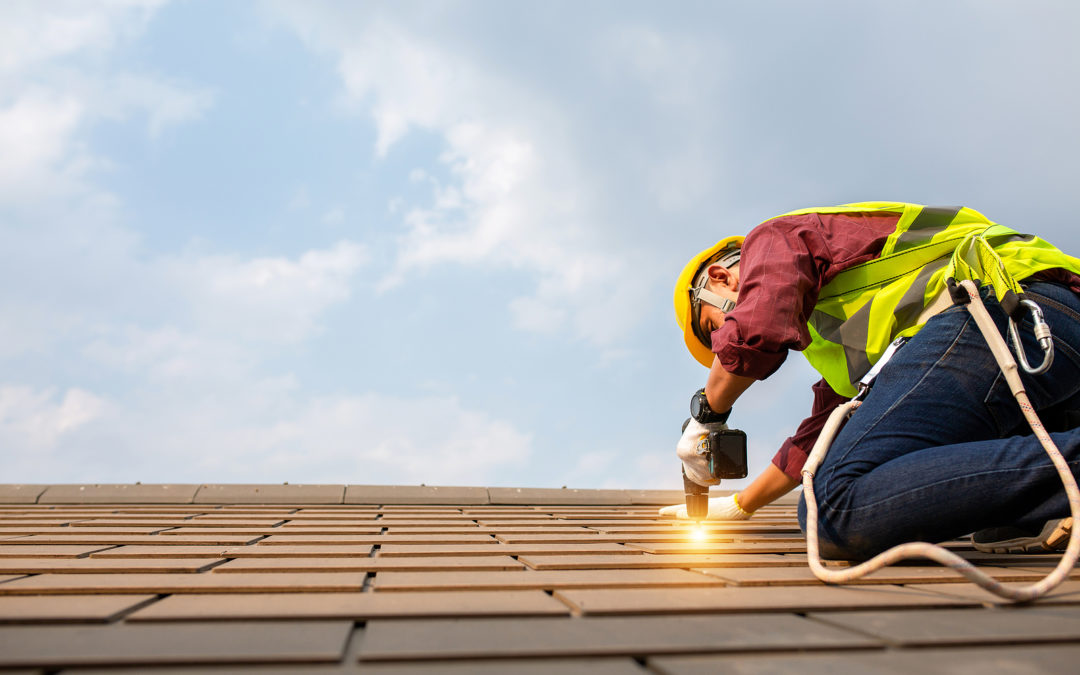Most people don’t want to buy a new roof. It’s expensive and disruptive, and it’s the least visible part of your house. Despite that, new roofs are necessary and inevitable. When you’re facing the prospect of a roof installation, it’s important to know your warranties. How will you be protected if something goes wrong with the new roof?
To help you tackle this subject, we’ve put together an easy breakdown of the three most common types of roofing warranties. If you’d like to learn more about roofing warranties, give Bert Roofing a call.
The Standard Manufacturer’s Warranty
As the name implies, this is what you can expect from your warranty for most new roofs. The details will always vary depending on the materials and the manufacturer, but there are some common and reasonable expectations.
On average, these warranties cover a period of 20 years or more. The purpose of the warranty is to guarantee the longevity of the materials used on your roof. If a roof needs a repair or replacement before the end of a standard warranty, it kicks in to cover all or part of the cost of the work.
More specifically, standard warranties usually only cover materials. Labor for the roof installation is not part of the deal. Additionally, these warranties don’t normally cover damage from “acts of God” or improper installation. Instead, the warranty is intended to cover roofing issues tied specifically to defective materials.
On top of all of that, standard warranties often use a system of prorating. What that means is that the dollar value of the warranty goes down over time. If there is one year left on a 20-year warranty, then the standard warranty will only cover 5% of the cost of materials for the repair or replacement. The specific numbers will vary, but this example illustrates how prorating works.
The Extended Manufacturer’s Warranty
Many manufacturers offer warranties that go above and beyond standard coverage. The nature of an extended warranty will still vary based on the material that is used and the manufacturer, but in all circumstances, it is adding to what you already had in terms of warranties.
The first thing to know is that extended warranties are not free. You pay extra for these in order to have additional coverage. An extended warranty can increase the duration of warranty coverage. It’s not uncommon to see such warranties last for 50 years.
Many extended warranties also drop prorated coverage and give you the full amount for the entire life of the warranty. You can also get extensions that cover more than just defective materials. Some manufacturers will cover workmanship, provided the installation is done by a certified contractor that they have vetted.
You can also find extended warranties that act as a bulwark against certain types of roofing damage. Some metal roofs might offer extended warranties that include hail damage, for instance. Overall, extended warranties can be all over the place, so it’s worth taking a little time to understand the options and how they compare.
Workmanship Warranties
The third kind of common warranty doesn’t worry about materials at all. Instead, it’s all about the contractors who actually install your roof. Since a roof’s longevity depends on both the quality of the materials and the quality of the work done during installation, workmanship warranties are just as important as manufacturer warranties.
Workmanship warranties are designed to provide coverage for issues that are tied to installation. The gist is that if something goes wrong that is the contractor’s fault, they will fix the problem. Because these warranties recognize that fault lies with the installation, they often cover the cost of labor and materials in order to remedy something that is their fault.
Ultimately, workmanship warranties are decided solely by the contractors, and because of that, they see a lot of variation. Some warranties will offer lifetime support while others end after only a few months. Some contractors offer extended warranties where they handle repairs or replacements in-house. Other contractors will hire out some of the work to cover issues that arise.
It’s a little all over the place, so the most important thing is to read through the workmanship warranty to understand how you are protected. Such warranties are a great way to vet contractors and see who is and isn’t willing to stand behind their work.
Your warranty is important because it can save you tens of thousands of dollars if something goes wrong with your roof. But it all hinges on good roofers. If the materials aren’t installed correctly, and the workmanship warranty leaves something to be desired, you might be on your own if your roof runs into trouble.
That’s why you need Bert Roofing Inc. Contact us today. We’ll help you go through all of your roofing options, including warranties. We’ll make sure you truly understand what is available so that you can make informed decisions. Once you do, we will provide professional installation and/or repair services that ensure your roof is in good shape from the start.

